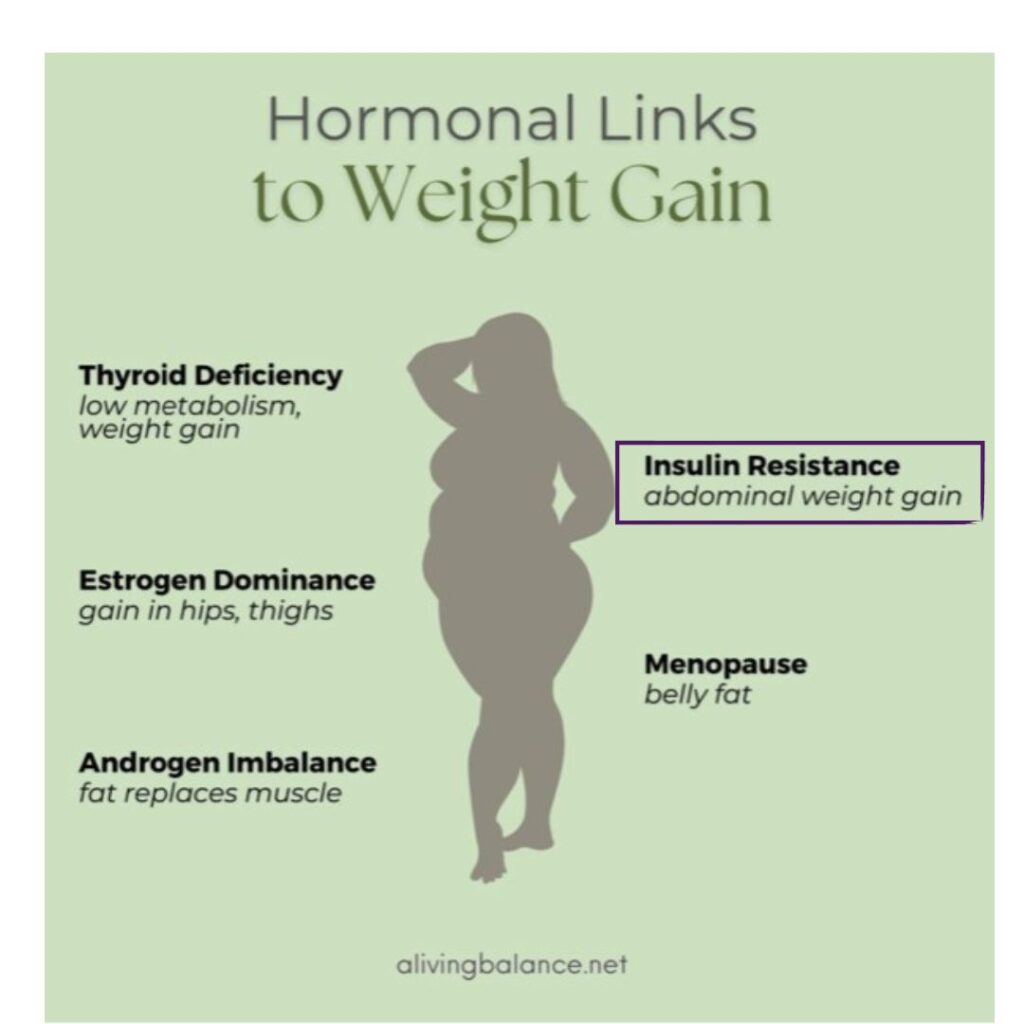Info Box

DO YOU KNOW YOUR FASTING INSULIN LEVEL?
Before you jump and say ‘yes’! Of course I do! You might want to double check, as about 90% of the people who come to see me have no idea what their insulin levels are. And that’s because most doctors, unfortunately, don’t test it.
Fasting insulin is way more important than your fasting glucose and A1c levels (which are the markers doctors depend on for determining pre-diabetes and diabetes) and here’s why.
1. Your fasting morning glucose is a one shot number that varies throughout the day and can actually be deceivingly good looking if you have low morning cortisol levels. And if you tend to have high cortisol when you wake up, there’s a good chance that your glucose will be on the higher end. Cortisol all by itself can raise glucose.(by the way, I’m a high morning cortisol girl and I usually flunk the morning glucose test but the rest of the day looks pretty good)
2. Your A1c number is an average of your glucose levels over a three month period. Problem with that is, I’ve observed some of my clients having low blood sugar episodes between 3:00-5:00 AM and then running a bit too high after meals. Yet, the numbers will average out to a fairly nice level.
3. Your fasting Insulin number will go up way before your glucose and A1c numbers rise. Making it a much better indicator of whether you’re on your way to pre-diabetes and diabetes, as much as 10 years before an A1c marker will indicate.
Now, having said all that, let’s talk about how INSULIN plays an important role in that stubborn belly fat in both men and women once we hit 50 and why INSULIN so important to track.
The first thing to know is, INSULIN is a FAT STORING hormone. Yep! Let that sink in for a minute. It turns glucose, sugars and processed grains, into fat and dumps it quite nicely, right around the midsection.
Let’s make this real for a minute, shall we? A 50 year old male comes in complaining of feeling lousy, tired all the time, weight gain of 20 lbs, all around his middle, low libido, a little depression and elevated blood pressure.
Assessment: Works way too much. Has a lot of stress. Exercises infrequently. Bloodwork reveals perfect A1c and glucose levels but triglycerides over 150 and fasting insulin of 11. These last two markers along with his sedentary lifestyle reveals why he’s lost his mojo.
His elevated insulin and high stress, along with little exercise is a perfect recipe for a drop in muscle mass, affecting his testosterone levels. His elevated insulin can be an underlying cause of his hypertension, which contributes to poor blood flow, another layer to his low libido.
Now for us women. We have a big event happening when we’re around 50. It’s the complete cessation of making the hormone estradiol in our ovaries, throwing us into menopause, whether we like it or not. And this condition is with us for the rest of our lives.
Having low amounts of estradiol along with low progesterone is inflammatory. Add in low thyroid and/or elevated insulin into the mix and you’re going to have that infamous menopausal bulge that just won’t leave.
Where do we want insulin levels? Between 2.3-7.0 is ideal.
If insulin levels start creeping up above 9, it’s going to be near impossible to get rid of that belly fat until it’s lowered.
So let’s look at 8 different ways insulin levels slowly rise.
Elevated stress/cortisol levels which in turns creates more production and excretion of glucose from our liver. So, even though we haven’t had any food, our glucose levels rise in response to our bodies thinking it needs fuel to handle a stressful event. Insulin, in its effort to keep our blood glucose levels within range, marches out each time we get a cortisol/glucose surge, no matter where that glucose is coming from.
Insulin resistance: constant elevated insulin, makes our cells eventually insulin resistant, requiring more insulin to be released to do the same job.
Consumption of processed foods-these foods quickly raise blood sugar-needing more insulin to combat the rise and opening the door to doing its job of storing excess glucose as fat.
Inactivity-losing muscle mass makes us less insulin sensitive and creates a need for fewer calories
Not getting enough protein and eating too many carbs.
A low fat diet: we tend to eat more carbs and protein. Fat DOES NOT raise glucose levels
Menopause-affects insulin sensitivity. HRT is a wonderful help here.
Ongoing inflammation-from anywhere but primarily from the gut or mouth.
The take a ways:
Ask your doctor to test your fasting insulin every year.
If you have the 50 and over belly bulge, think elevated insulin.
Look at the reasons insulin rises (listed above) and see what you can do to change them.
Not sure what to do next? Schedule a call with me here.
Take Care!
Love,
Cindy D